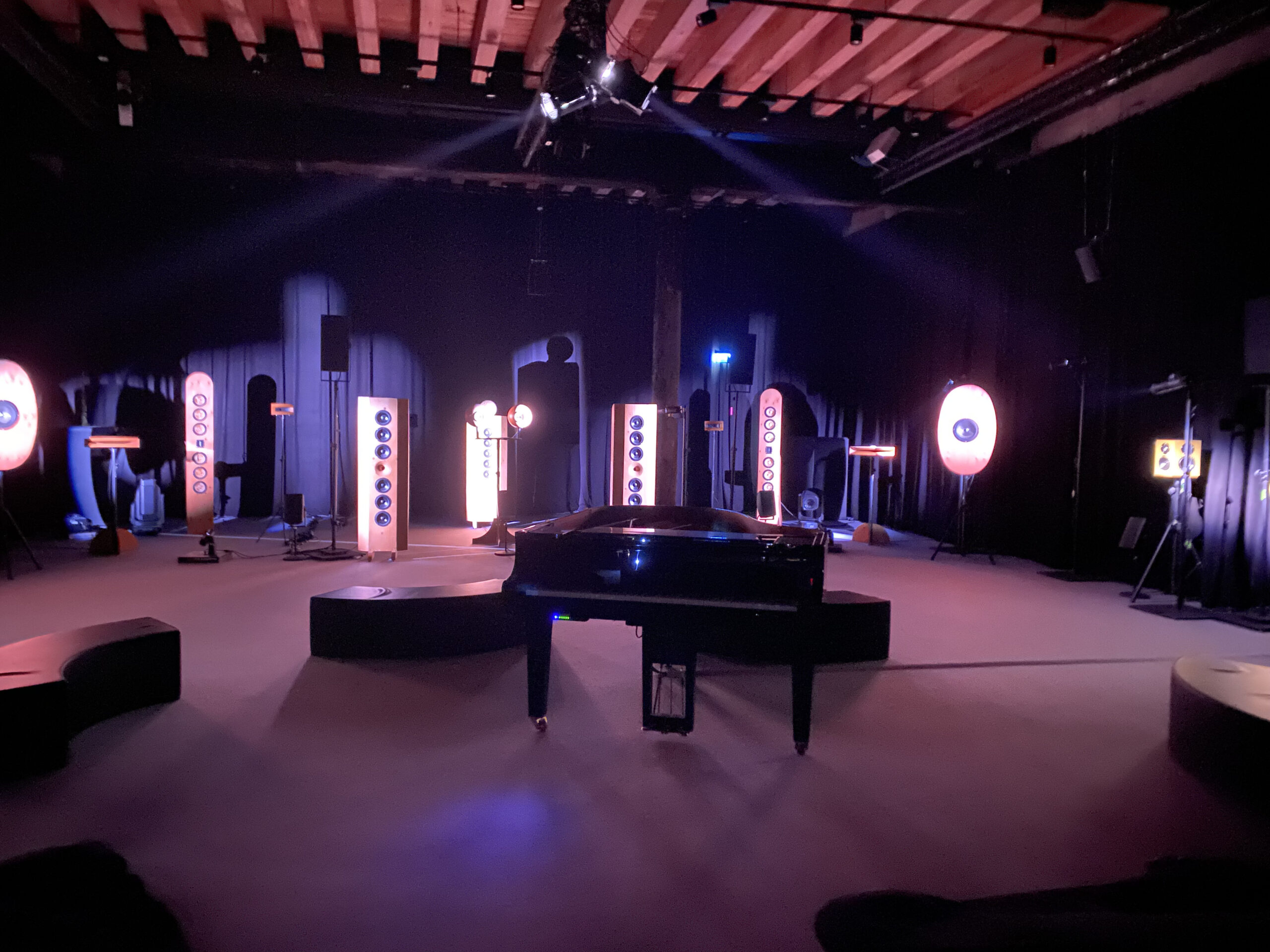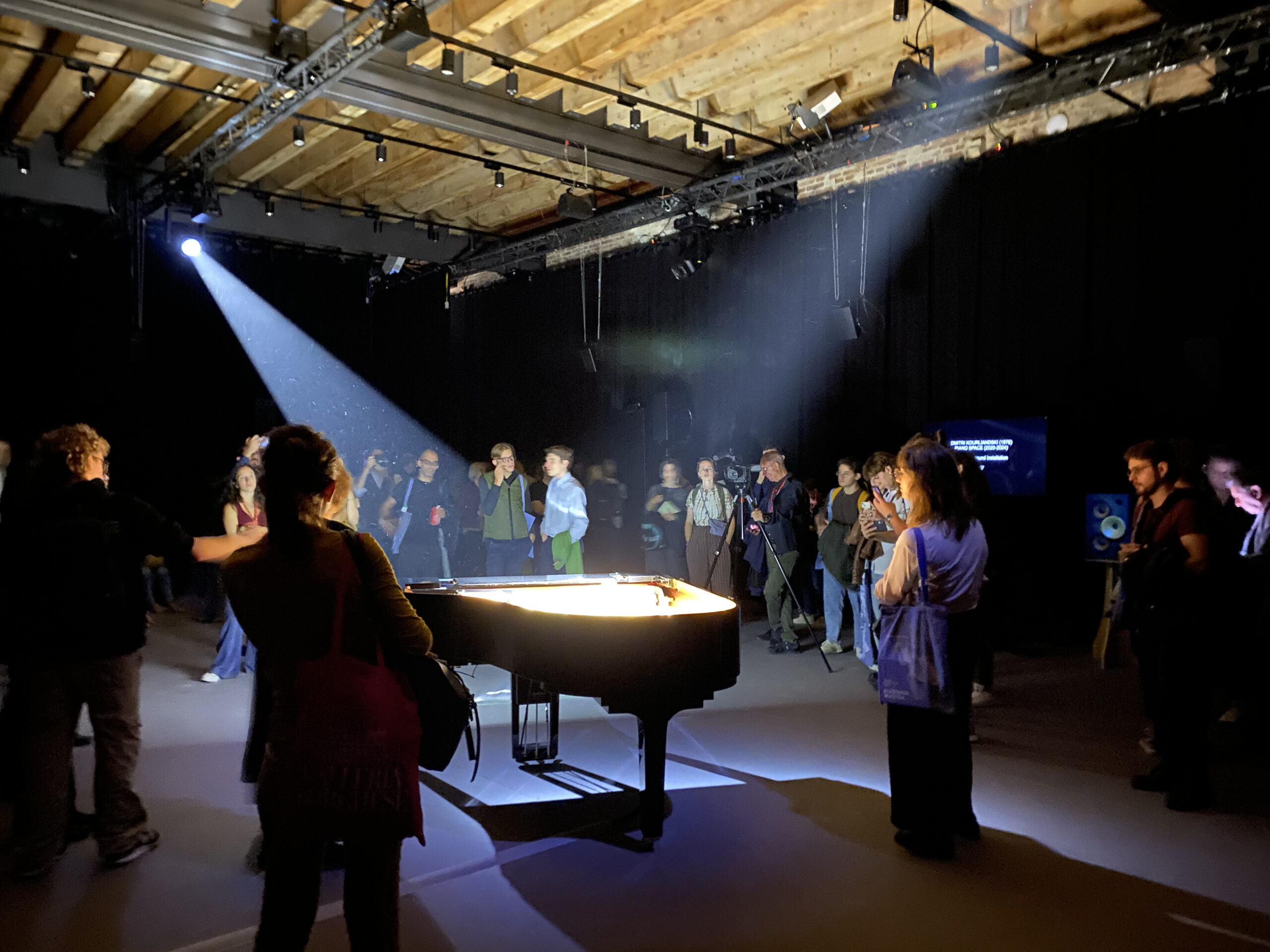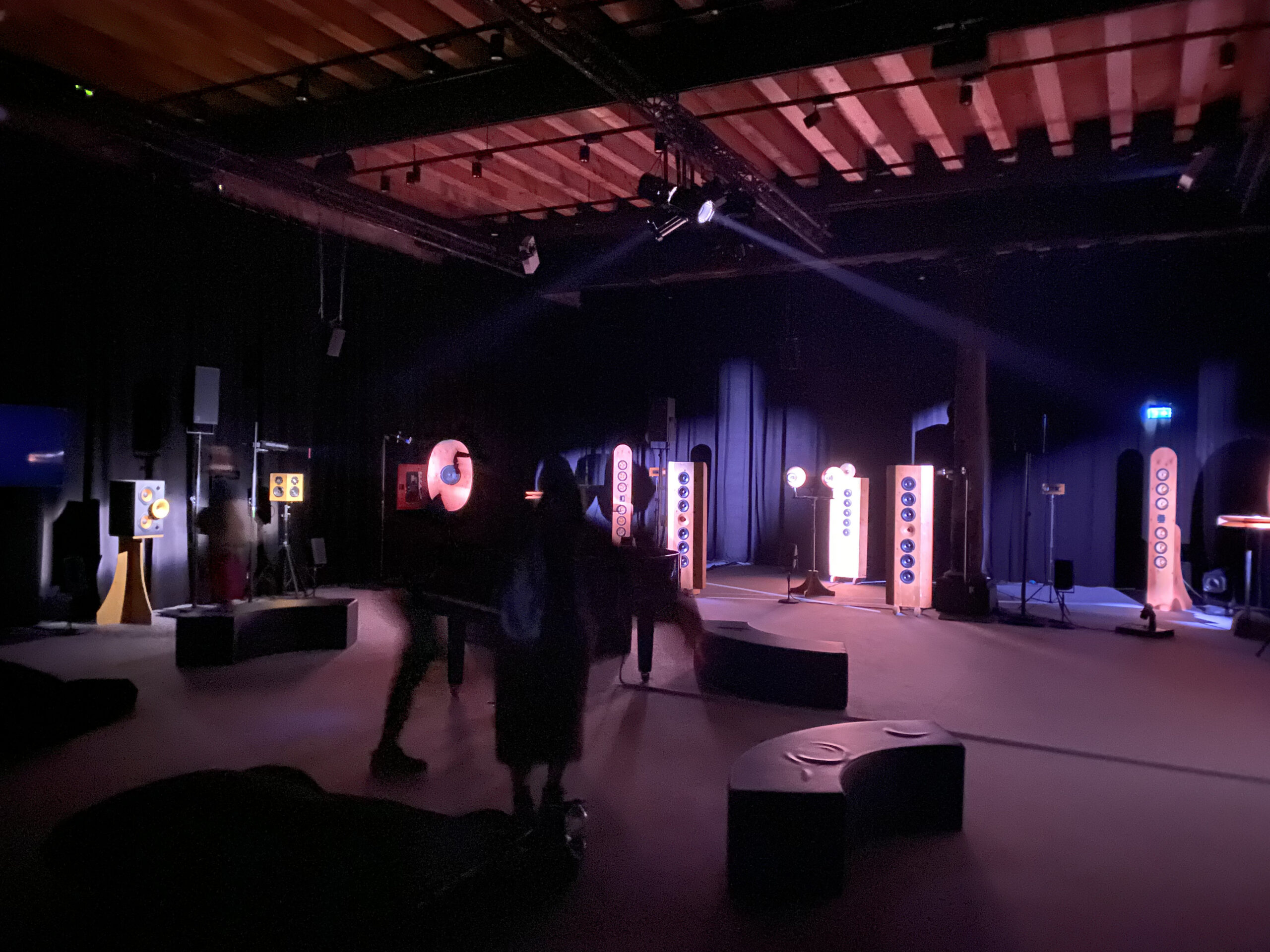Absolute Hallucination: An AI Self-Playing Piano Improvisation by Futurelab Key Researcher Ali Nikrang explores the creative space learned by an AI-based music composition system by randomly traveling through different compositional paths. It provokes questions about the nature of music and the hallucinatory characteristics of generative AI. The world premiere of this piece took place at Biennale Musica 2024 in Venice.
The term “hallucination” often applies to instances where modern large language models like ChatGPT generate non-factual information. This is a technical problem arising from their statistical nature. In creative endeavors, however, this tendency transforms into an asset, enabling the discovery of novel patterns and connections within data.
The AI behind the musical ‘hallucination’ is called Ricercar– a composition system developed by Ali Nikrang, which has been developed at the Ars Electronica Futurelab since 2019 and has been undergoing parallel development at the University of Music and Performing Arts Munich since 2023. Ricercar (“to seek out” in Italian) refers to a musical form of the Renaissance and Baroque periods in which composers used this form to explore the musical and artistic potential of a theme.
The analogy underscores the exploratory nature of AI creativity, which can serve as a passive exploratory space for human artists to actively navigate. The project encourages reflection on the inherent artistic nature of music. Creative in its exploratory nature, AI works at the level of data, breaking down the underlying components that make up music. This raises the question: To what extent is music just data (and exists in isolation from human or artistic means), and at what point does it become an artistic, human and social phenomenon?
Credits
Ars Electronica Futurelab: Ali Nikrang
PARTNER: La Biennale di Venezia


